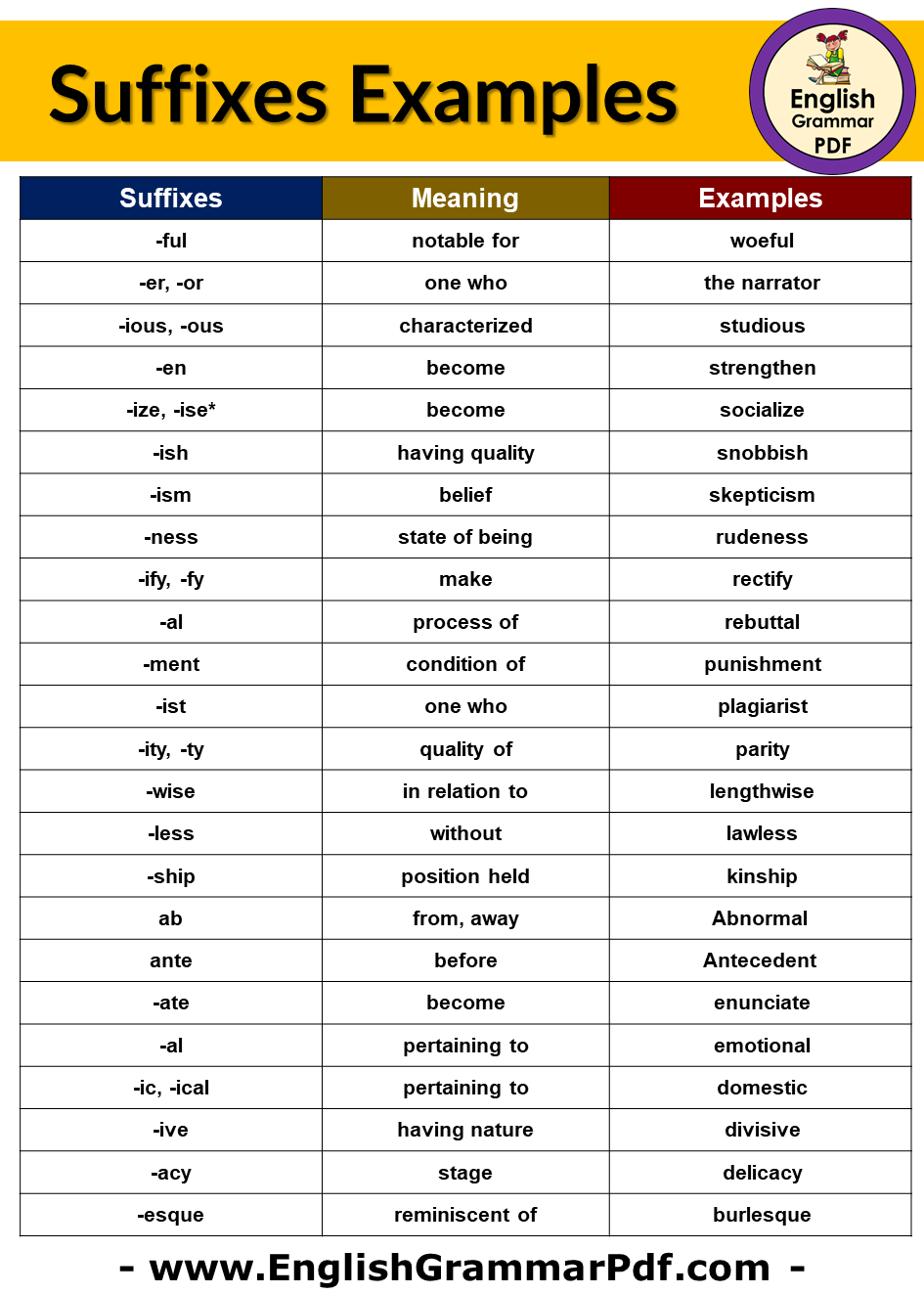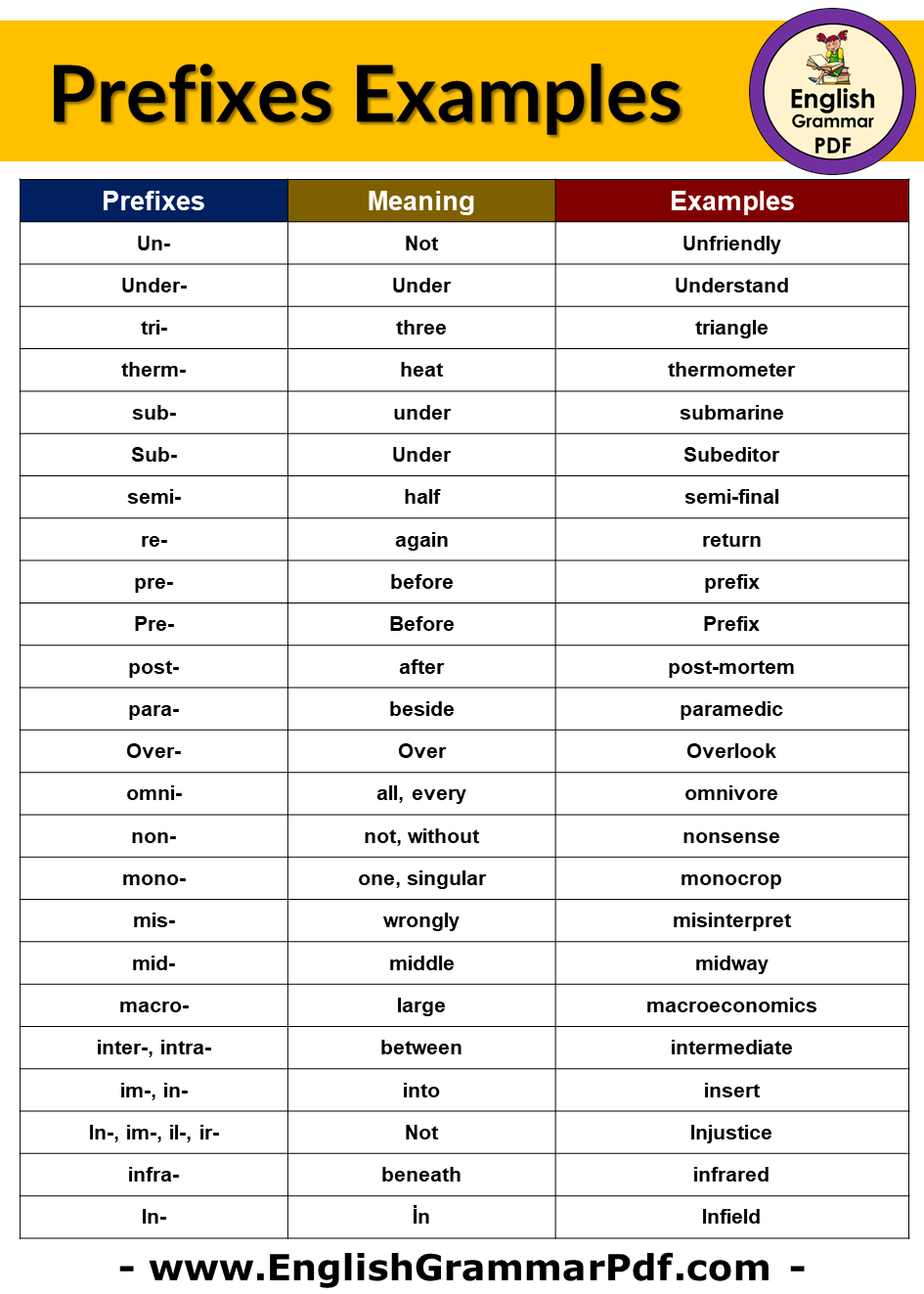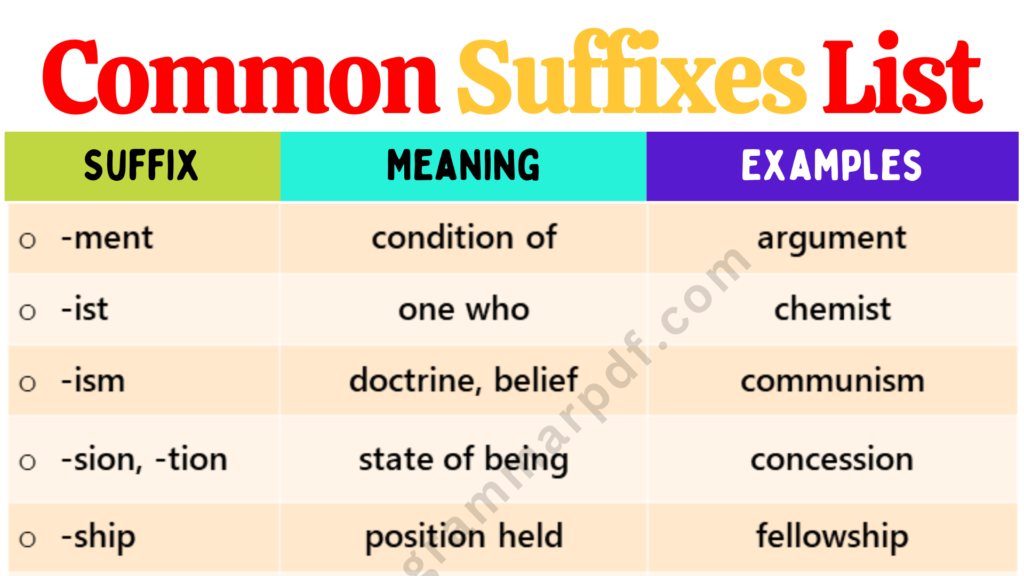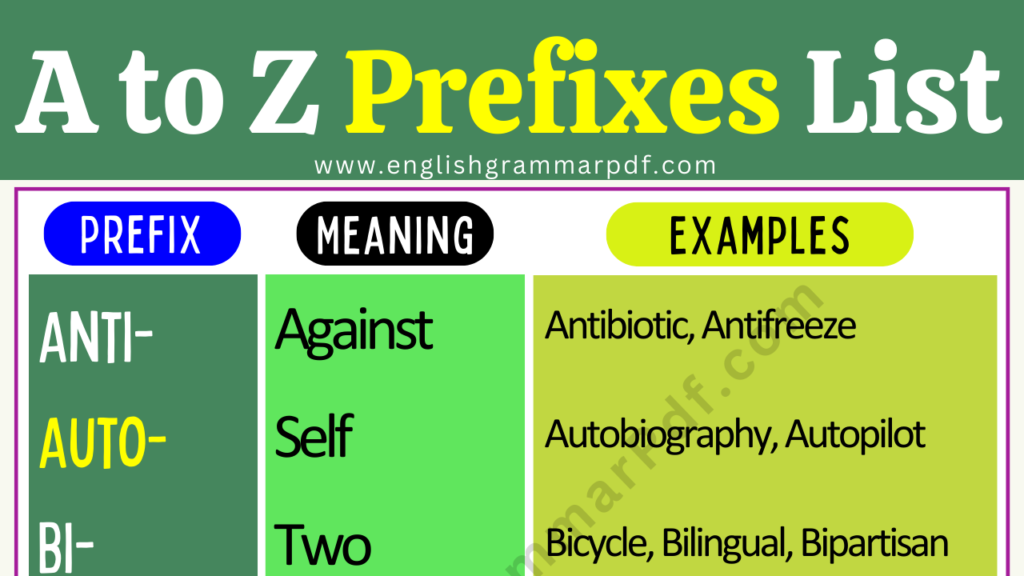Language is like a big, colorful puzzle, and words are the pieces that fit together to create beautiful pictures, or in this case, sentences. Prefixes and suffixes are special pieces of this puzzle.
A prefix is a little group of letters we add at the beginning of a word to change its meaning, like adding “un-” to “happy” to make “unhappy.” A suffix is similar, but we add it at the end of a word, like adding “-ful” to “wonder” to make “wonderful.” Understanding these can help English learners and those looking to improve their skills see the language in a whole new way.
Examples of Prefixes in Sentences
- Un-: The dog was unhappy when it started raining.
- Re-: She decided to reread her favorite book.
- Pre-: The chef prepared a delicious meal.
- Mis-: He misunderstood the instructions.
- Dis-: The students disagreed on the topic.
- Ex-: She’s an excellent singer.
- Im-: His actions were impossible to ignore.
- Over-: The cake was overcooked and burnt.
- Under-: The treasure was hidden underwater.
- Sub-: They had to submerge the submarine.
- Inter-: The internet connects people worldwide.
- Anti-: The medicine is for antibiotic purposes.
- Non-: Nonstop flights are more convenient.
- Post-: She’ll postpone the meeting until tomorrow.
- Super-: The superhero saved the city.
- Auto-: An automatic door opened as we approached.
- Co-: They cooperate well on group projects.
- Bi-: The bicycle has two wheels.
- Exo-: The exoskeleton protects the insect.
- Hyper-: The hyperactive child had endless energy.
- Un-: The unicorn is a mythical creature.
- Micro-: Microscopic organisms are too tiny to see.
- Tele-: The television broadcasts the latest news.
- In-: The introverted person prefers solitude.
- Trans-: They transported the goods across the border.
- Multi-: The multicolored flowers filled the garden.
- Quad-: The quadrilateral has four sides.
- Bi-: The binoculars helped us see far away.
- Semi-: She made a semicircle with her arms.
- Tri-: The tricycle has three wheels.
- En-: He enjoyed playing the piano.
- Pro-: She’s a professional photographer.
- Per-: The performance was excellent.
- Con-: We had a conversation about our plans.
- A-: The atypical behavior surprised everyone.
- Ab-: They abandoned the old house.
- Ad-: The advertisement caught my attention.
- Il-: It’s illegal to park here.
- Ir-: His irresponsible actions led to trouble.
- Un-: The unlocking code was a secret.
Examples of Suffixes in Sentences
- -ing: She is running in the park.
- -ed: He baked a delicious cake.
- -ly: She spoke softly to the baby.
- -er: He’s a fast runner.
- -est: This is the tallest building in town.
- -ful: The garden is colorful in spring.
- -less: He felt helpless without his phone.
- -able: The puzzle is solvable.
- -ment: She made an announcement.
- -ion: His explanation was clear.
- -ness: Her kindness touched everyone.
- -ity: The city’s beauty amazed me.
- -ize: We need to organize our files.
- -er: She’s a good singer.
- -est: This is the darkest room.
- -ish: The soup tasted blandish.
- -ous: The mountain is dangerous to climb.
- -ive: He’s always talkative in class.
- -ness: The darkness scared the child.
- -ment: The agreement was in writing.
- -er: He’s a skilled painter.
- -est: This is the happiest day of my life.
- -ize: Can you digitize this document?
- -ful: The basket is full of apples.
- -less: She felt homeless after the fire.
- -able: The book is readable.
- -ist: She’s a talented pianist.
- -ism: His criticism caused a lot of problems.
- -ous: The weather is sunny and glorious.
- -ive: His persuasive speech convinced us.
- -ment: The announcement was unexpected.
- -er: She’s a fast typist.
- -est: This is the coldest winter ever.
- -ish: The cake tastes sweetish.
- -ive: His creative ideas impressed everyone.
- -less: The mission seemed impossible.
- -able: The chair is stackable.
- -en: They will lengthen the road.
- -ed: She’s a talented actress.
- -ly: He spoke calmly during the interview.
Explore More:
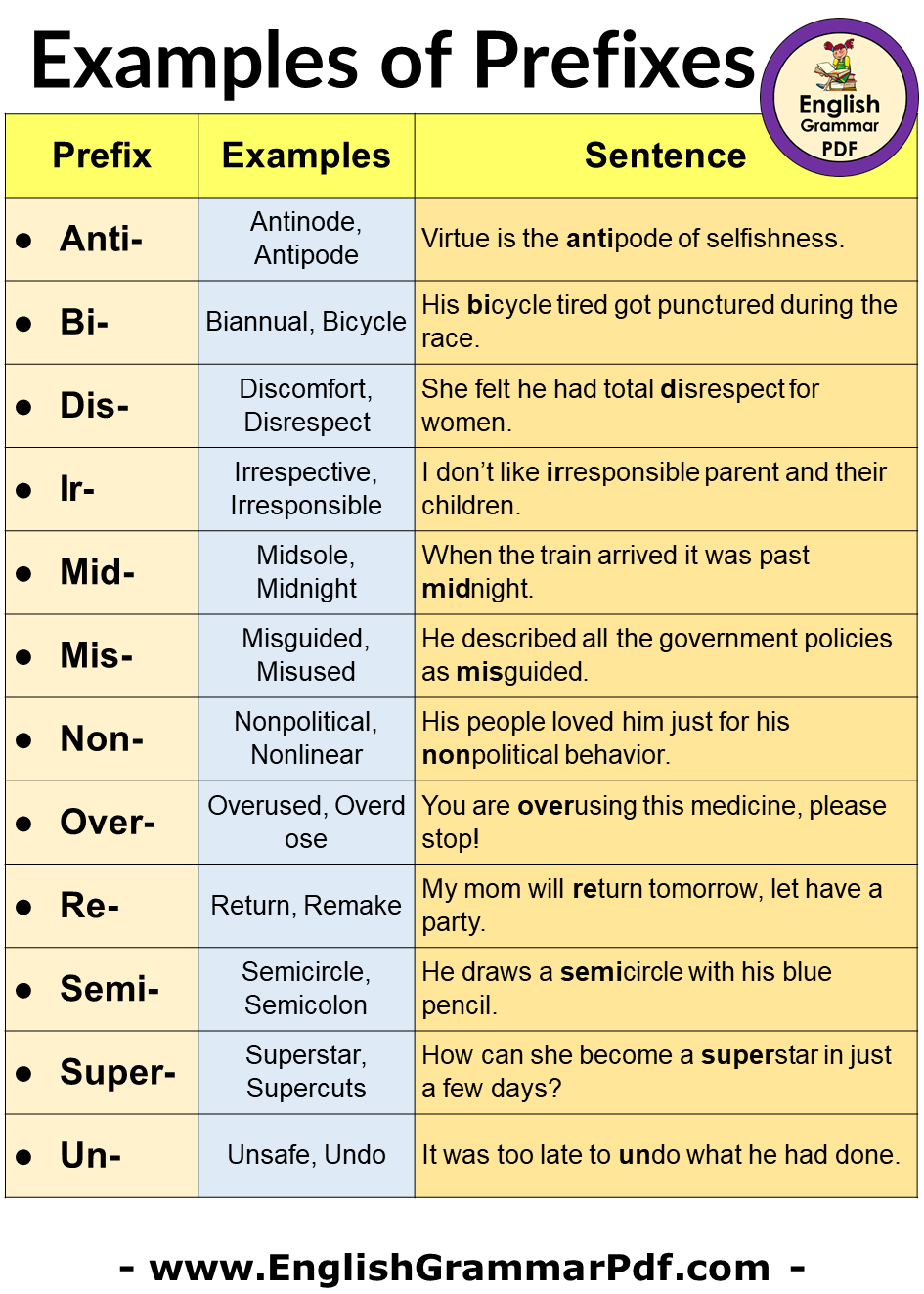
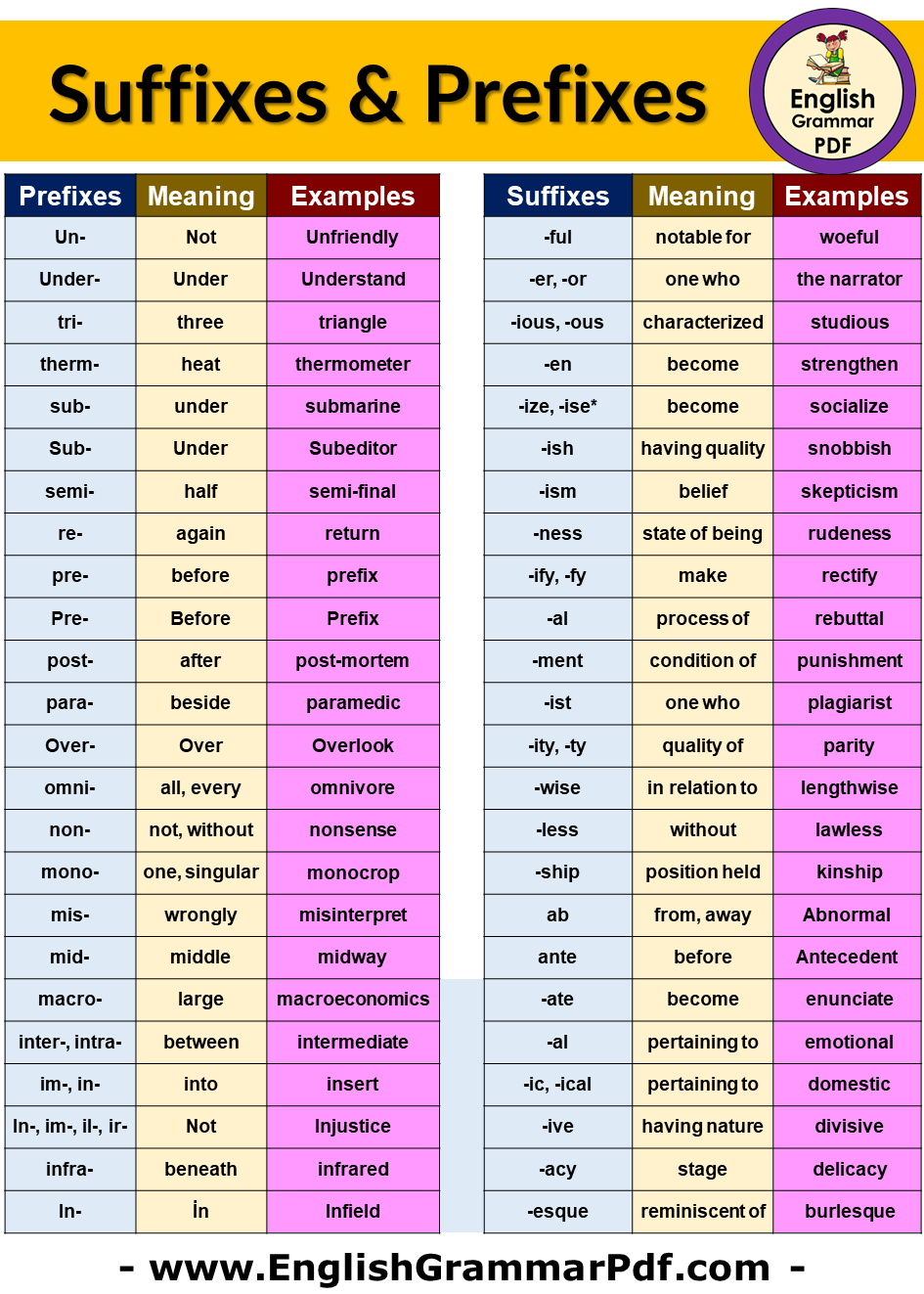
Download this lesson in PDF

